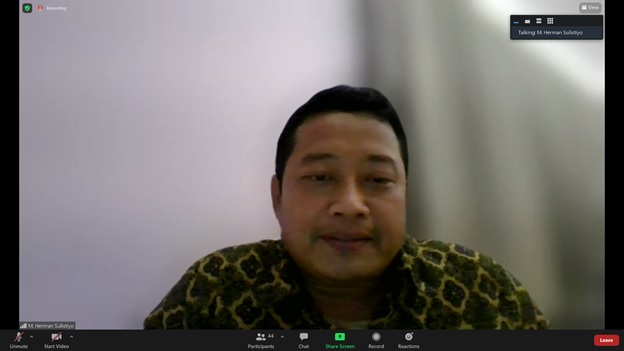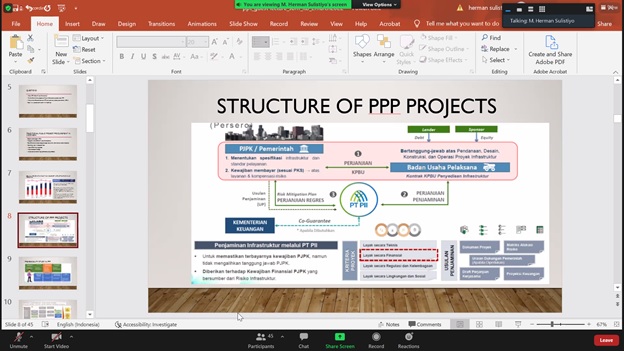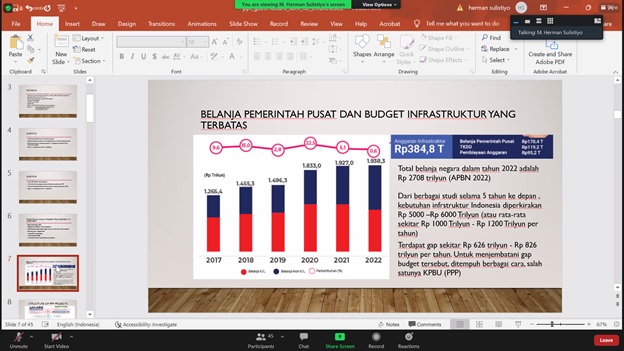Infrastructure projects is high risk, so careful planning and implementation, and detailed and rational maintenance are crucial.
 Ir. Mohammad Herman Sulistiyo, Ph.D., a Lecturer, and Researcher of the Faculty of Economics and Business University of Indonesia, presented about the Project Feasibility in the Infrastructure Sector in Guest Lecture MBA ITB Bandung on Wednesday (2/3/2022). According to the former Vice President of the National Team for the Acceleration of Poverty Reduction (TNP2K), infrastructure projects are done in many countries.
Ir. Mohammad Herman Sulistiyo, Ph.D., a Lecturer, and Researcher of the Faculty of Economics and Business University of Indonesia, presented about the Project Feasibility in the Infrastructure Sector in Guest Lecture MBA ITB Bandung on Wednesday (2/3/2022). According to the former Vice President of the National Team for the Acceleration of Poverty Reduction (TNP2K), infrastructure projects are done in many countries.
The development sector may distinguish infrastructure development between developing and developed countries. In a developed country, they have their sector on which they rely. For example, in the United States, they created Silicon Valley, which was more focused on technological development. In contrast, most developing countries are more concerned with meeting basic needs, such as health and education.

Herman also stated that this PPP has significant advantages in dealing with today’s societal problems. Overcrowding in prisons is one of the issues that PPP can address. Where budget funds obtained from the state budget (APBN) cannot be used entirely for prison construction, the private sector can contribute capital and technical expertise to assist the government in resolving the problems.

Herman, an ITB, UI, and Hiroshima University graduate, concluded the discussion with a growth mindset. As of April 2021, 33 infrastructure projects in Indonesia have been handled through PPP. With a total value of 335 trillion rupiahs, the PPP concept is expected to provide long-term benefits and prosperity to many parties.





